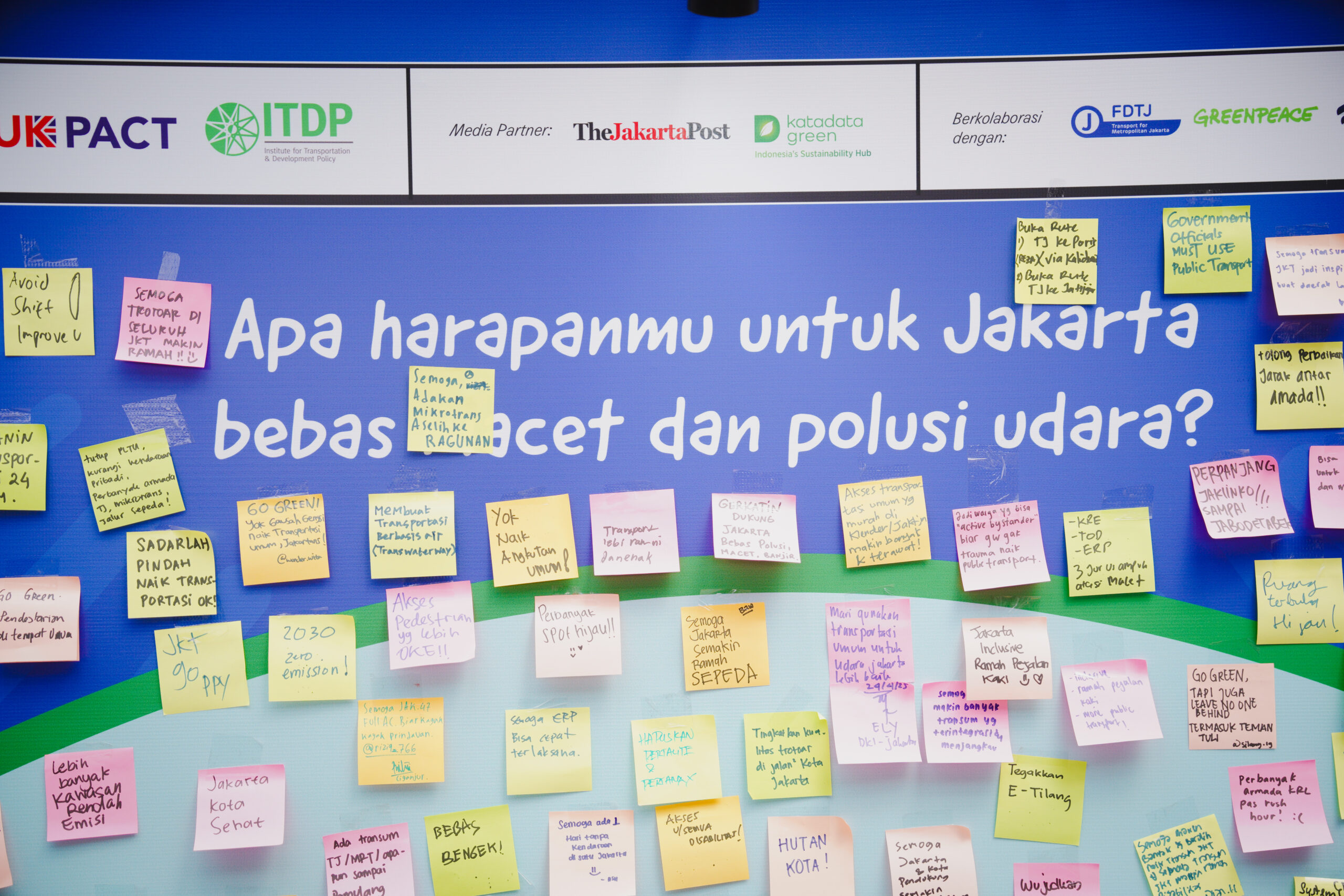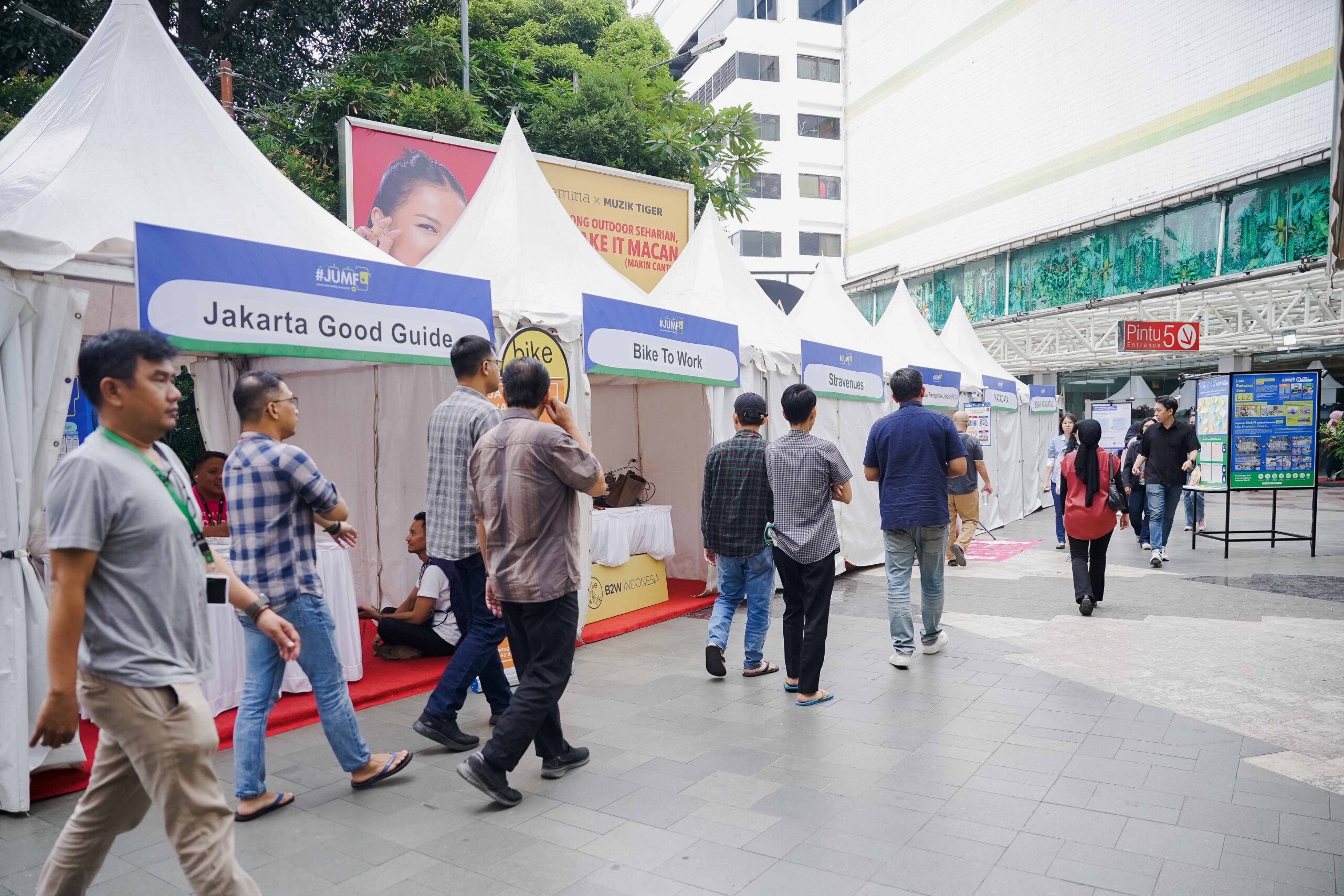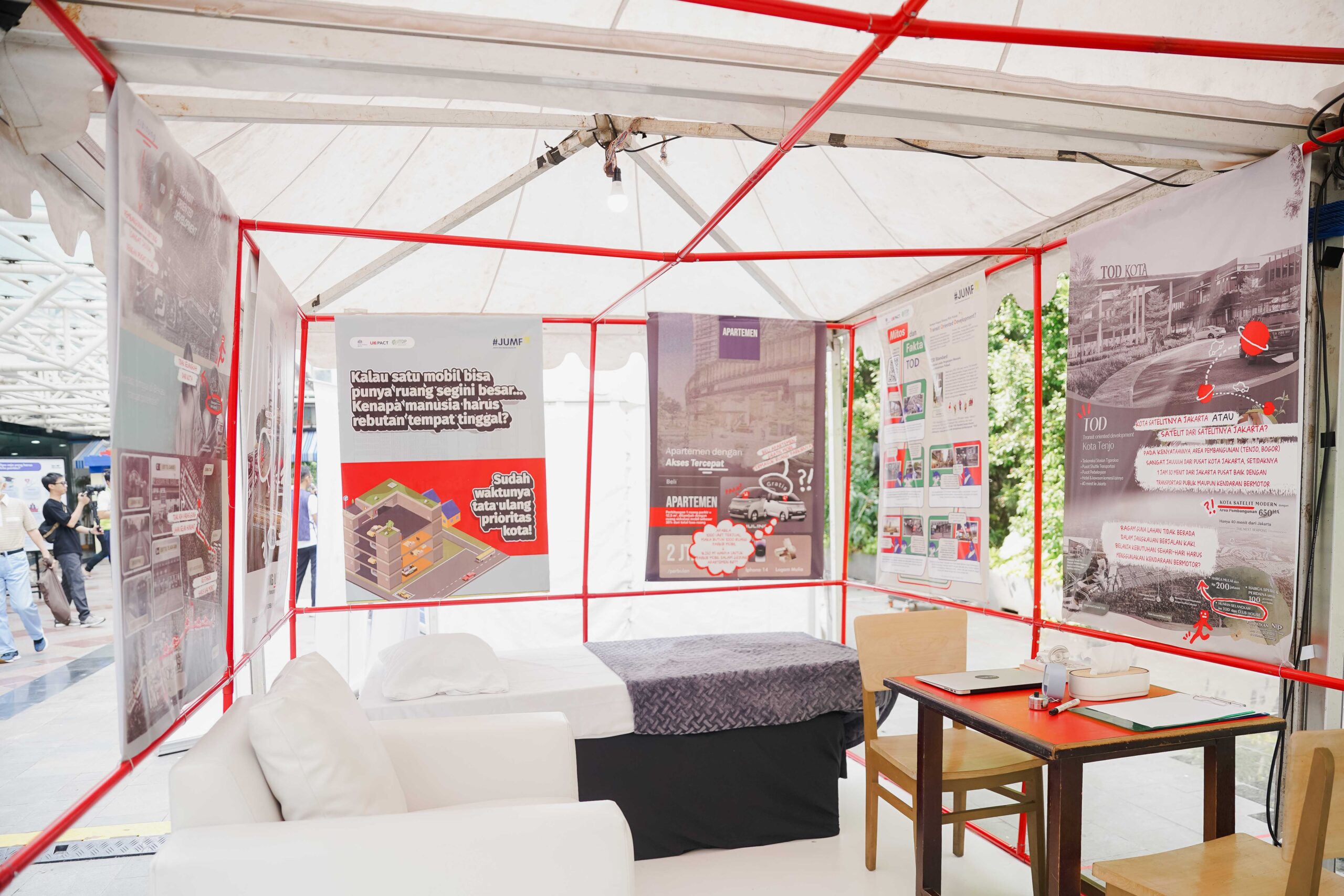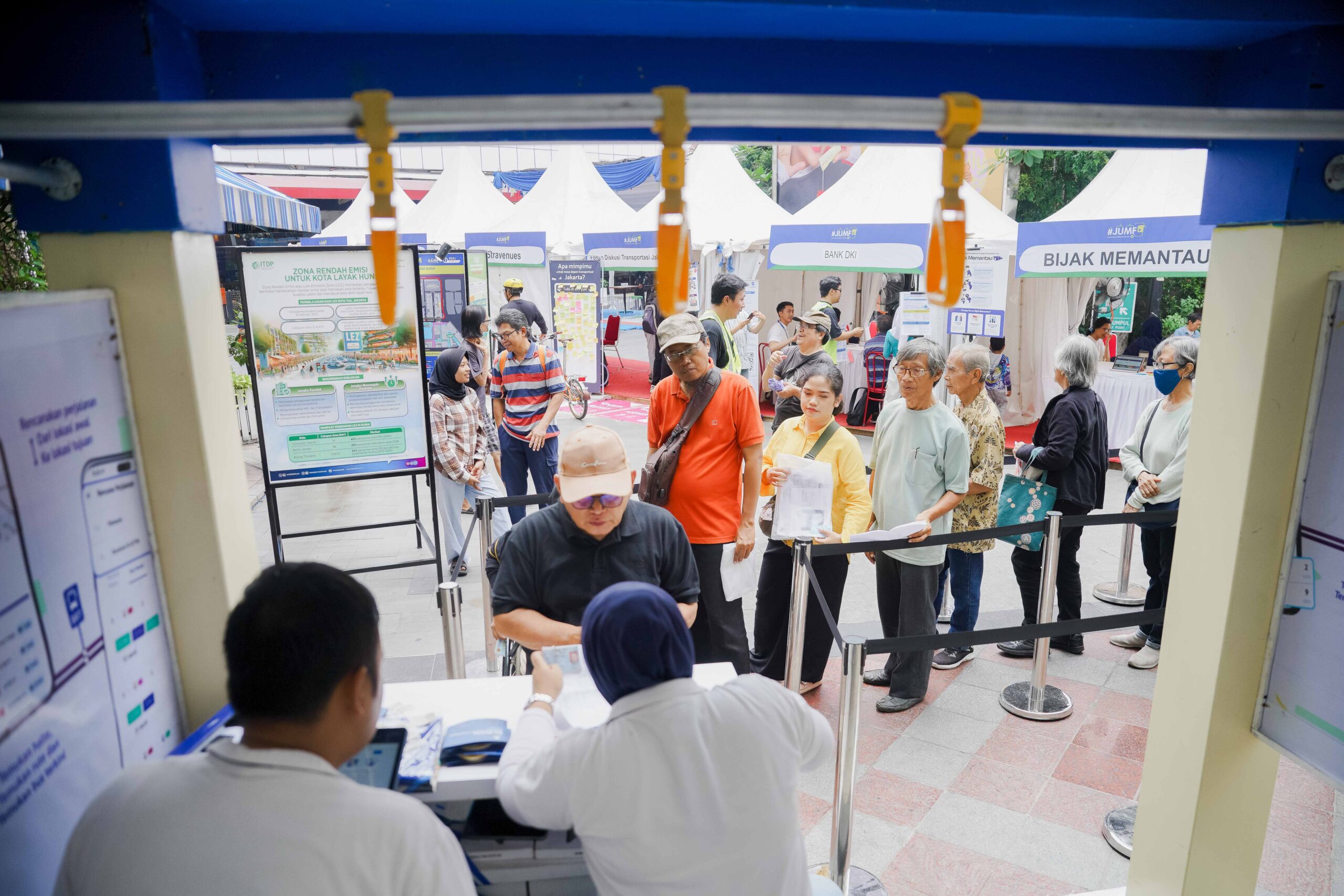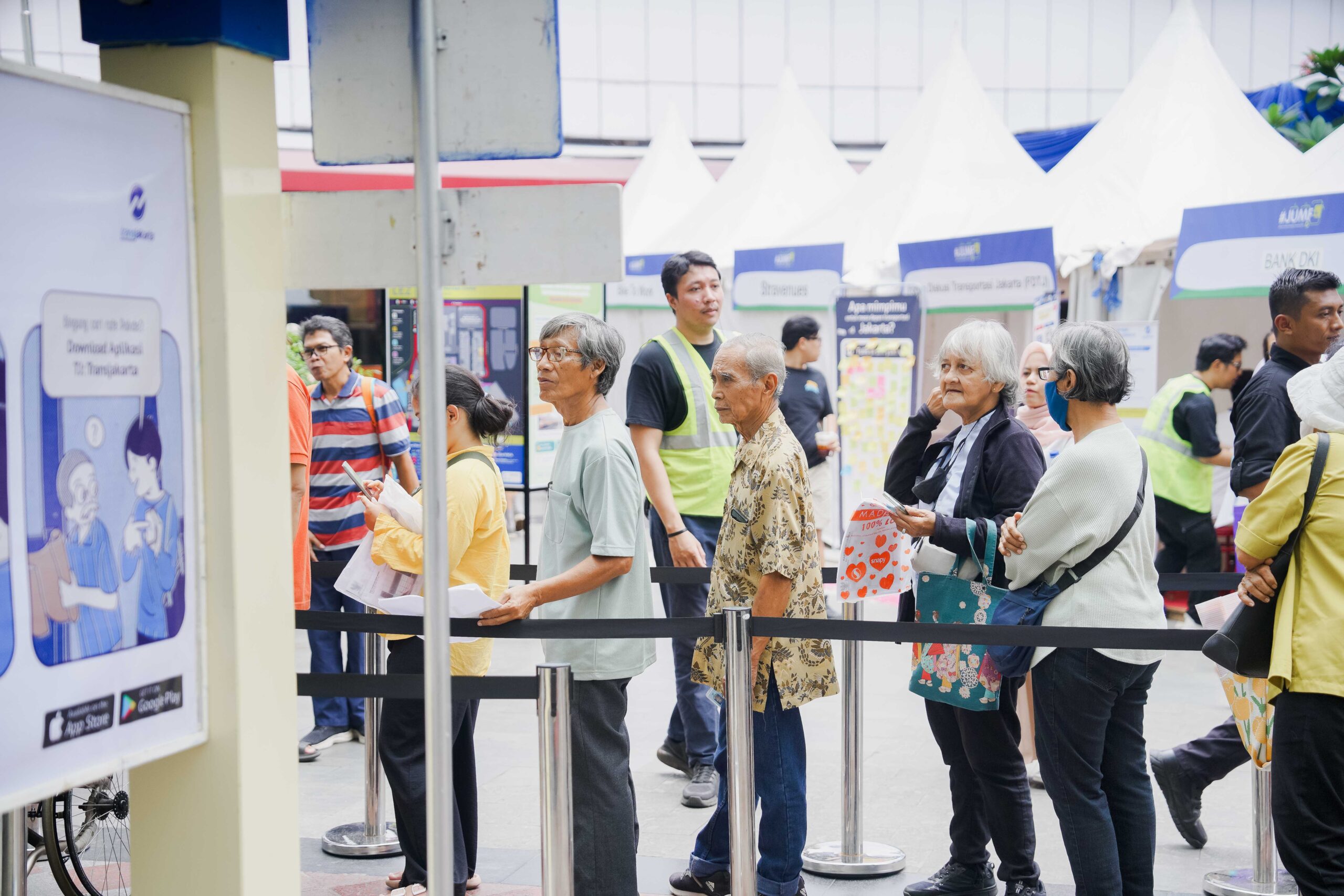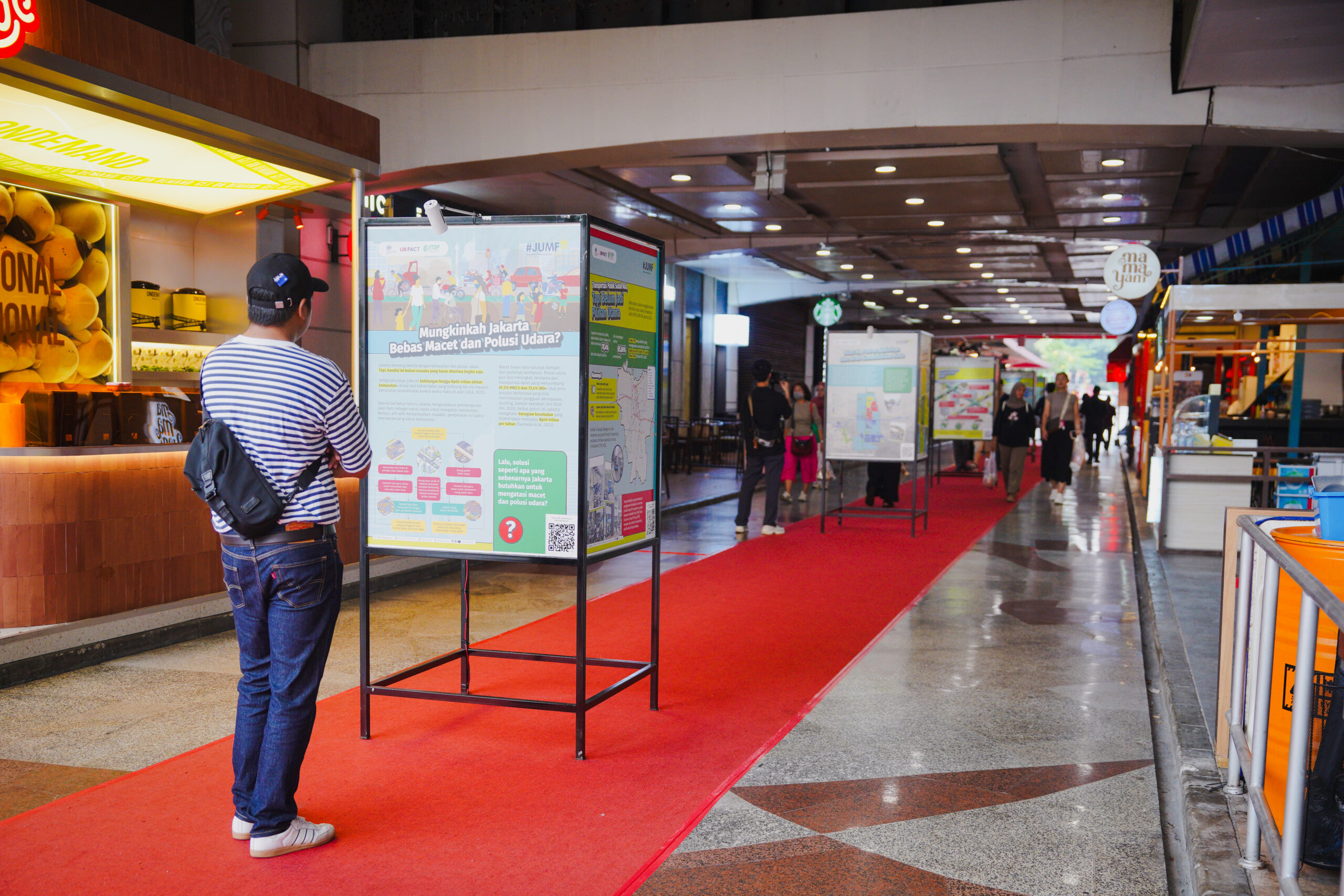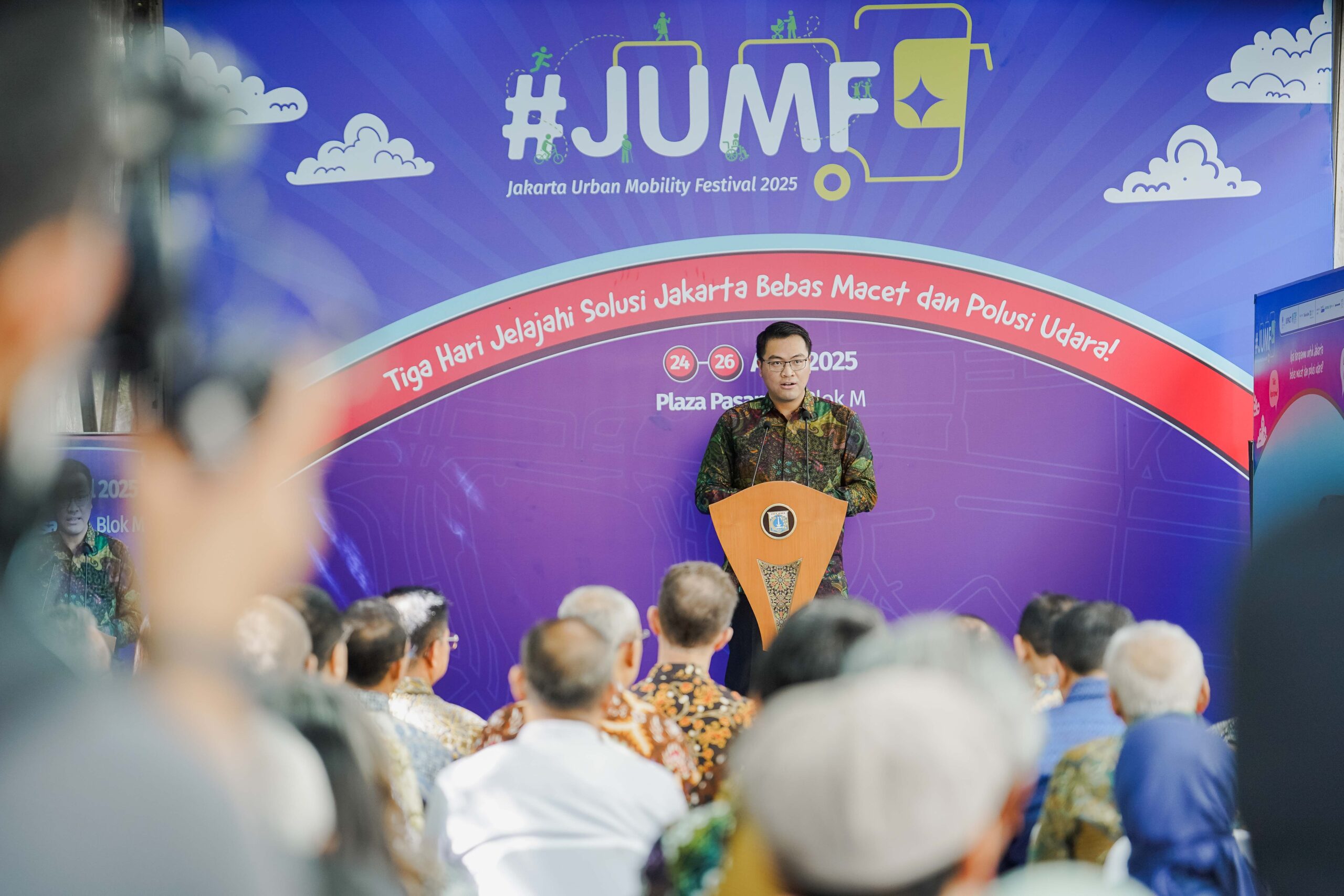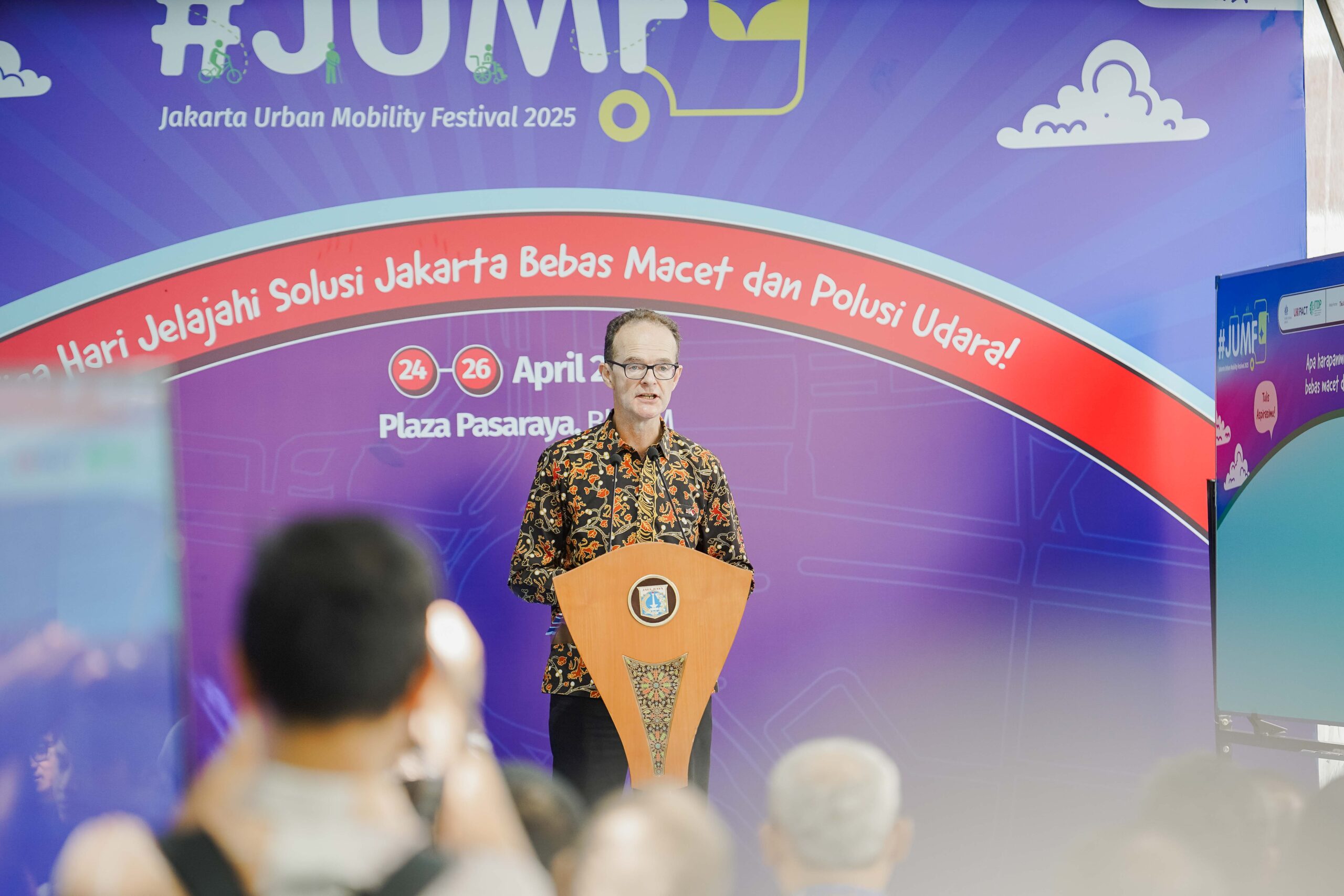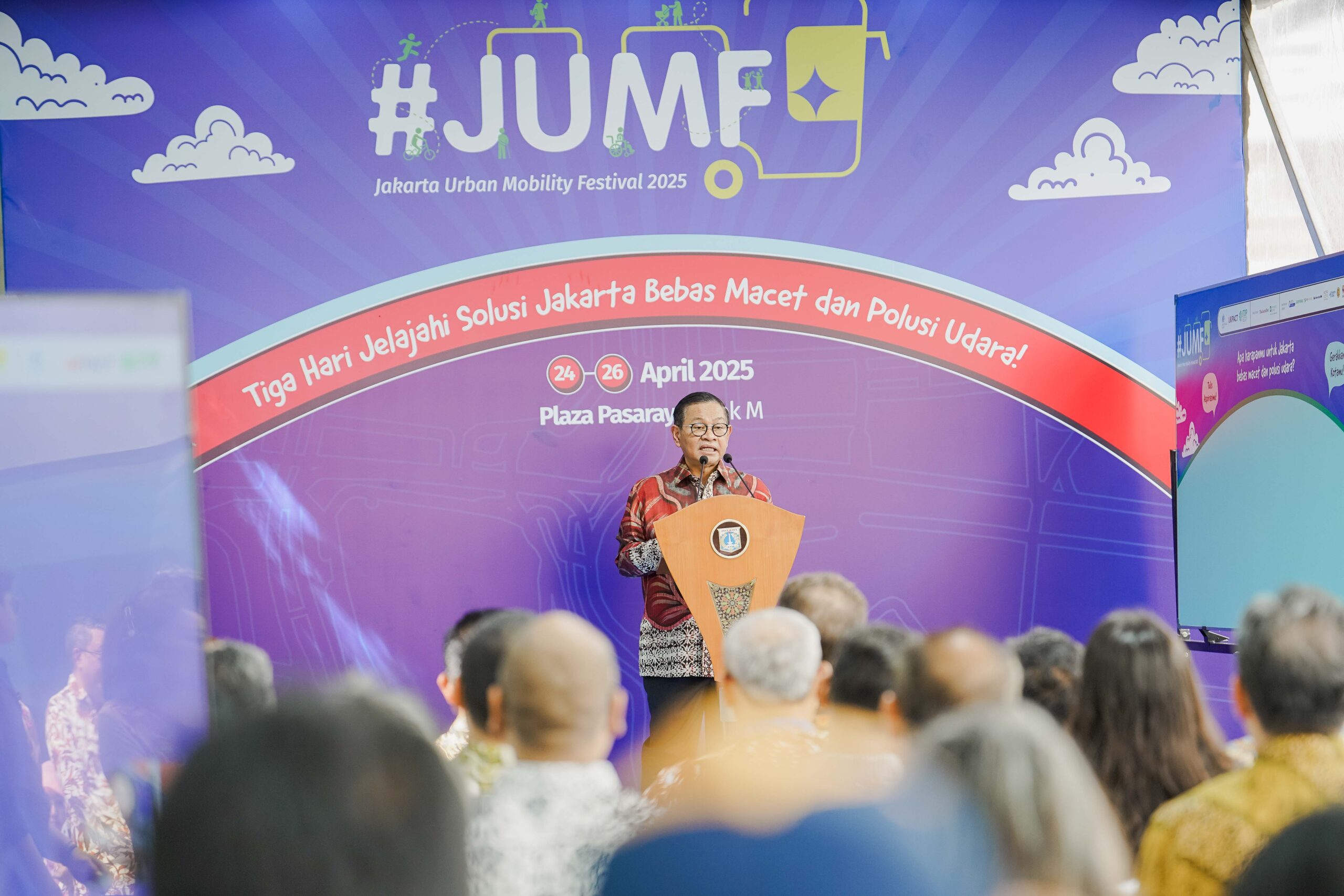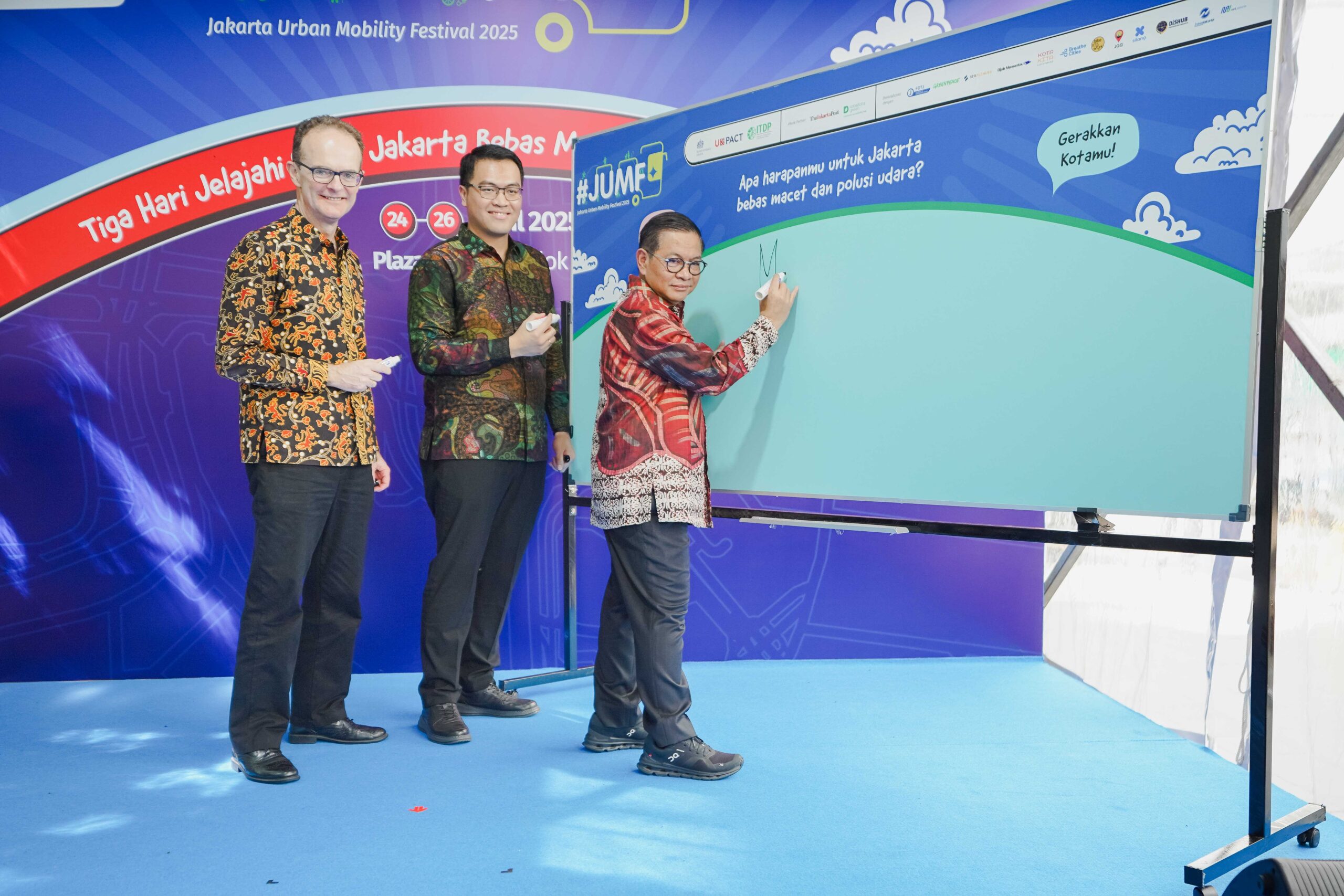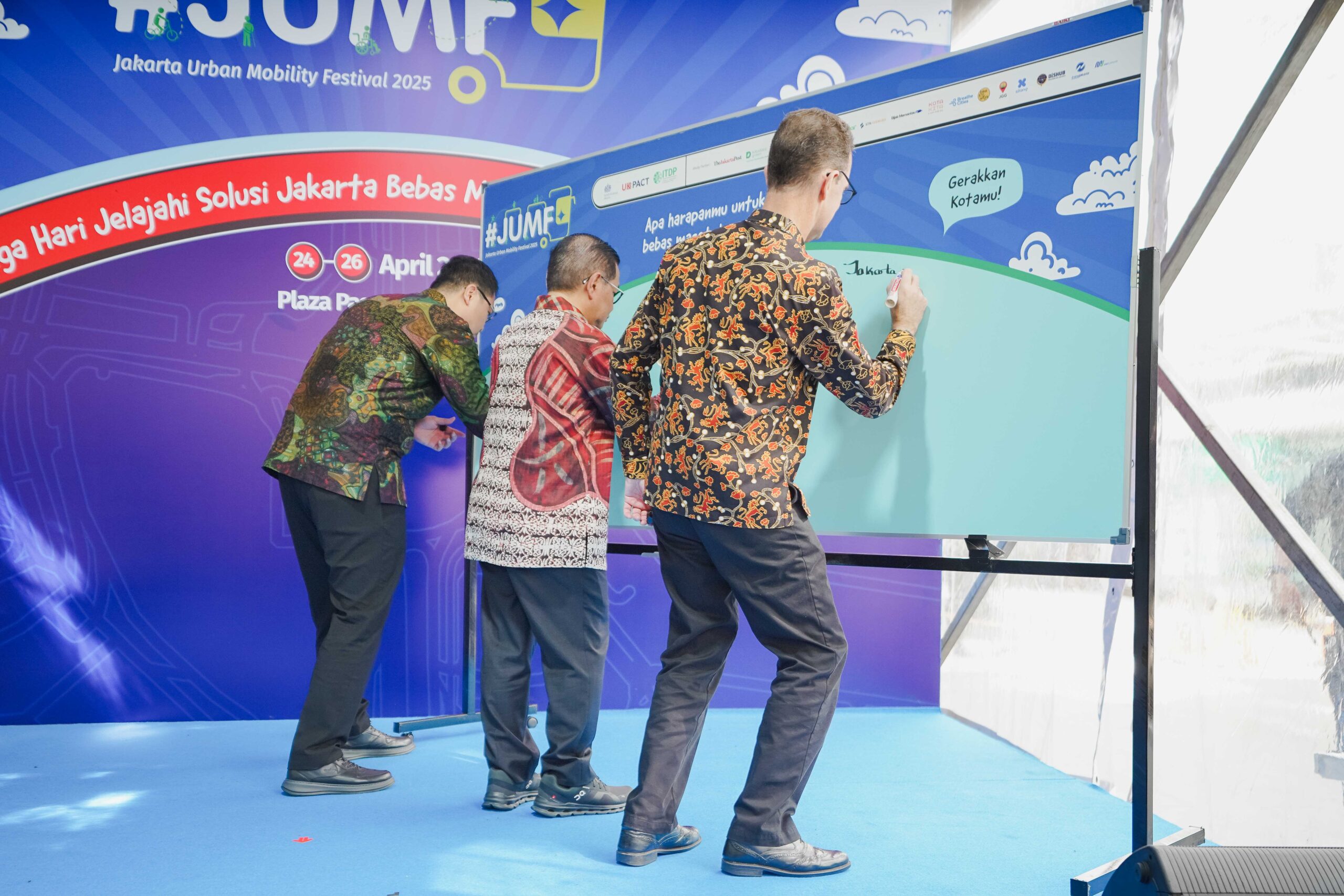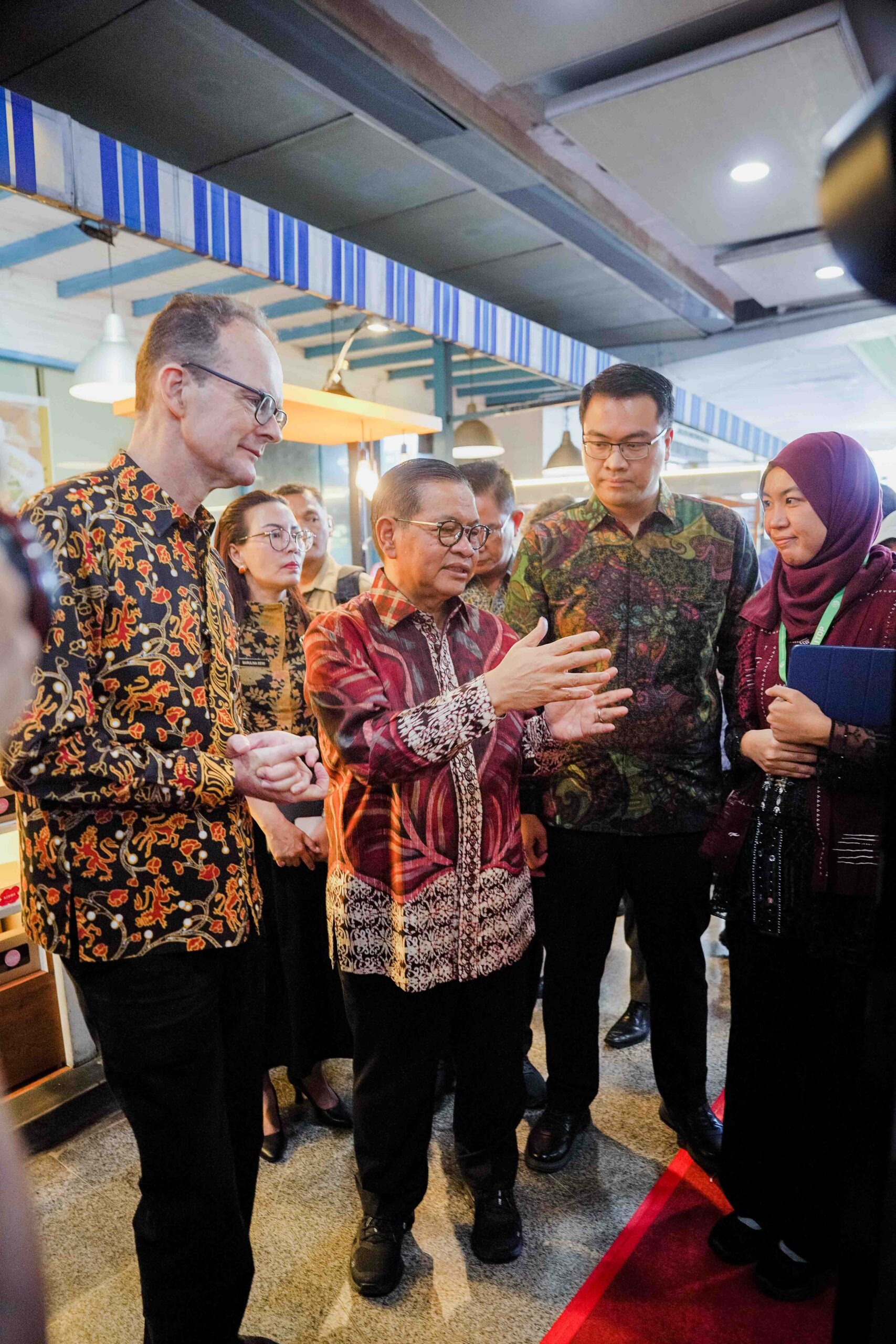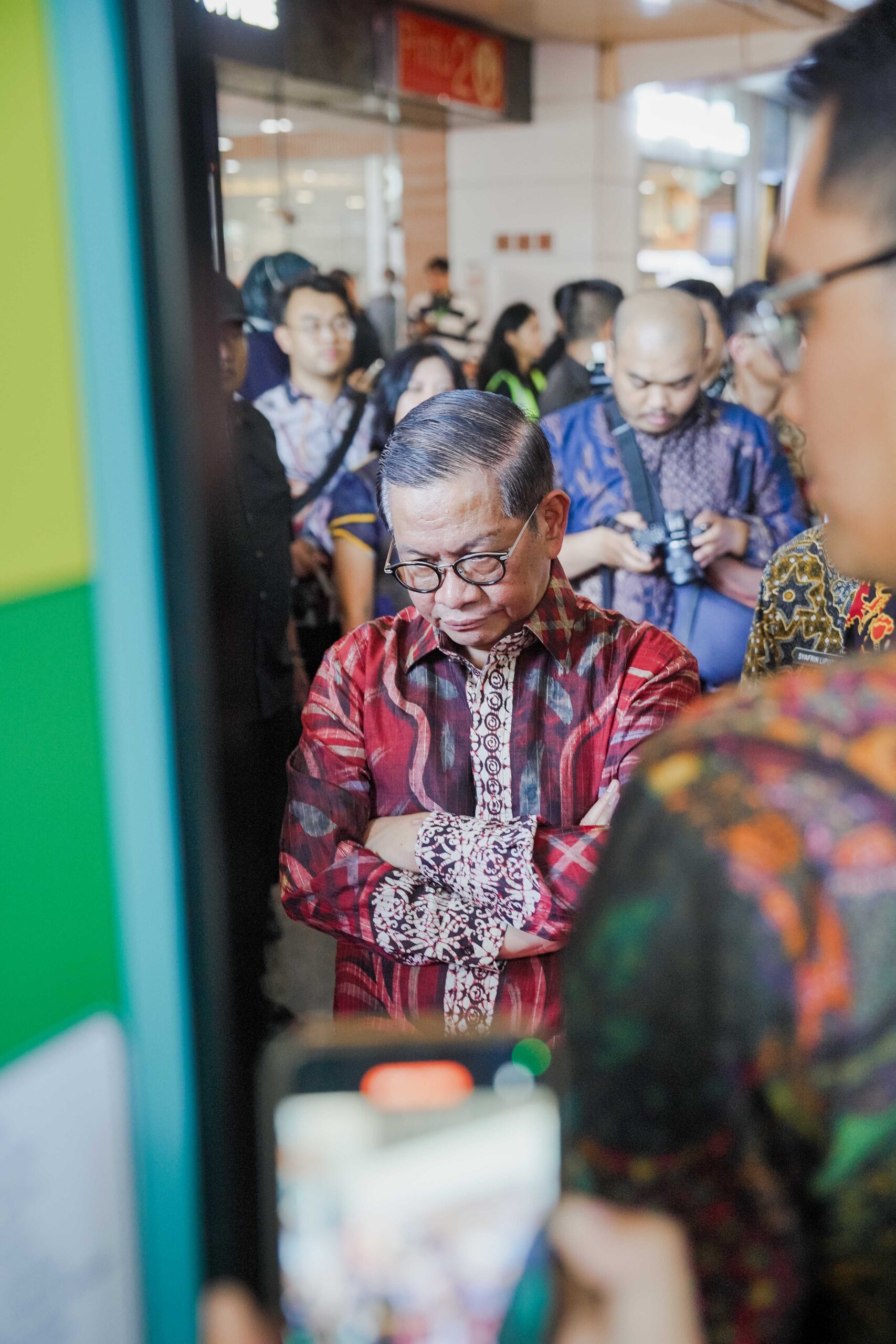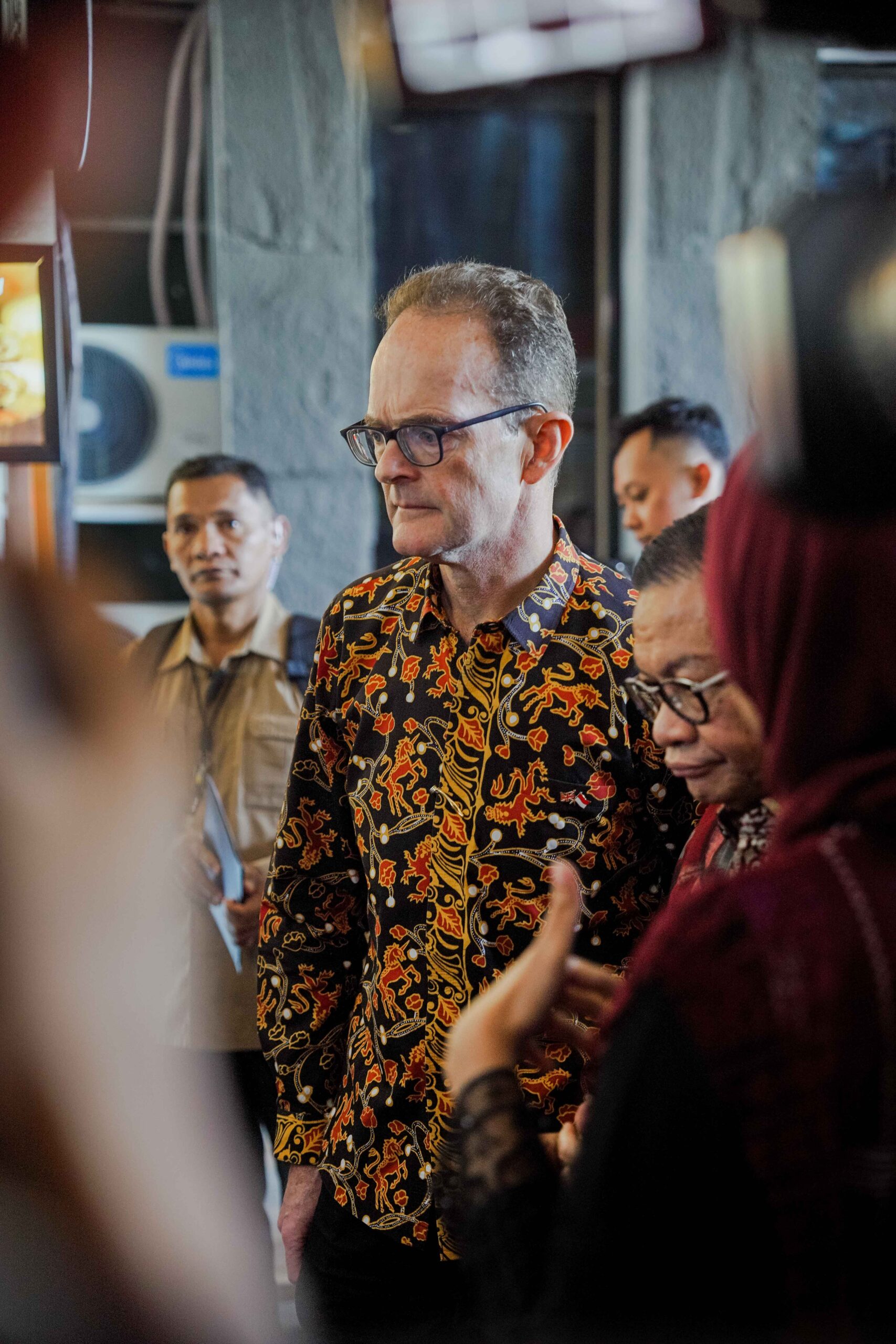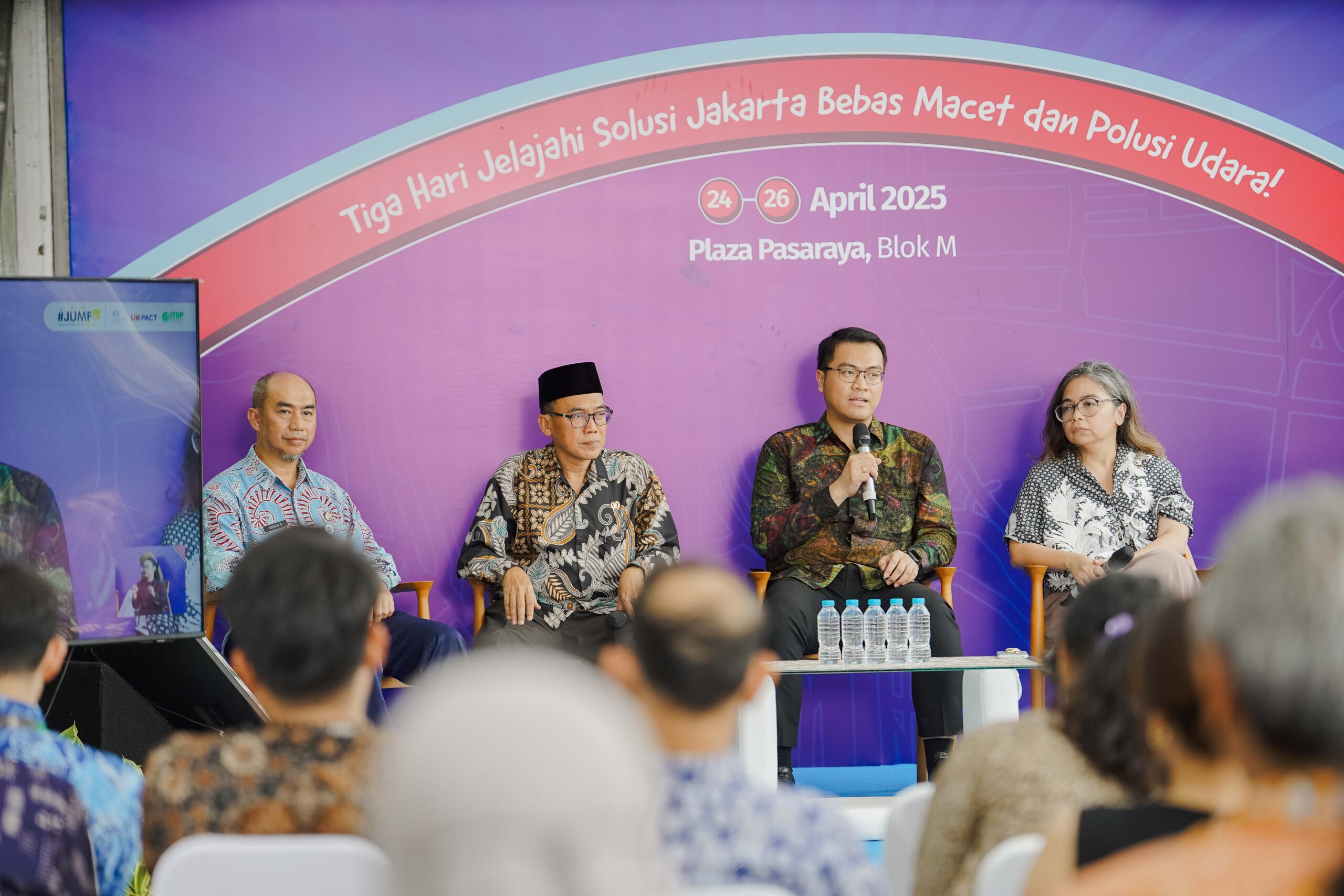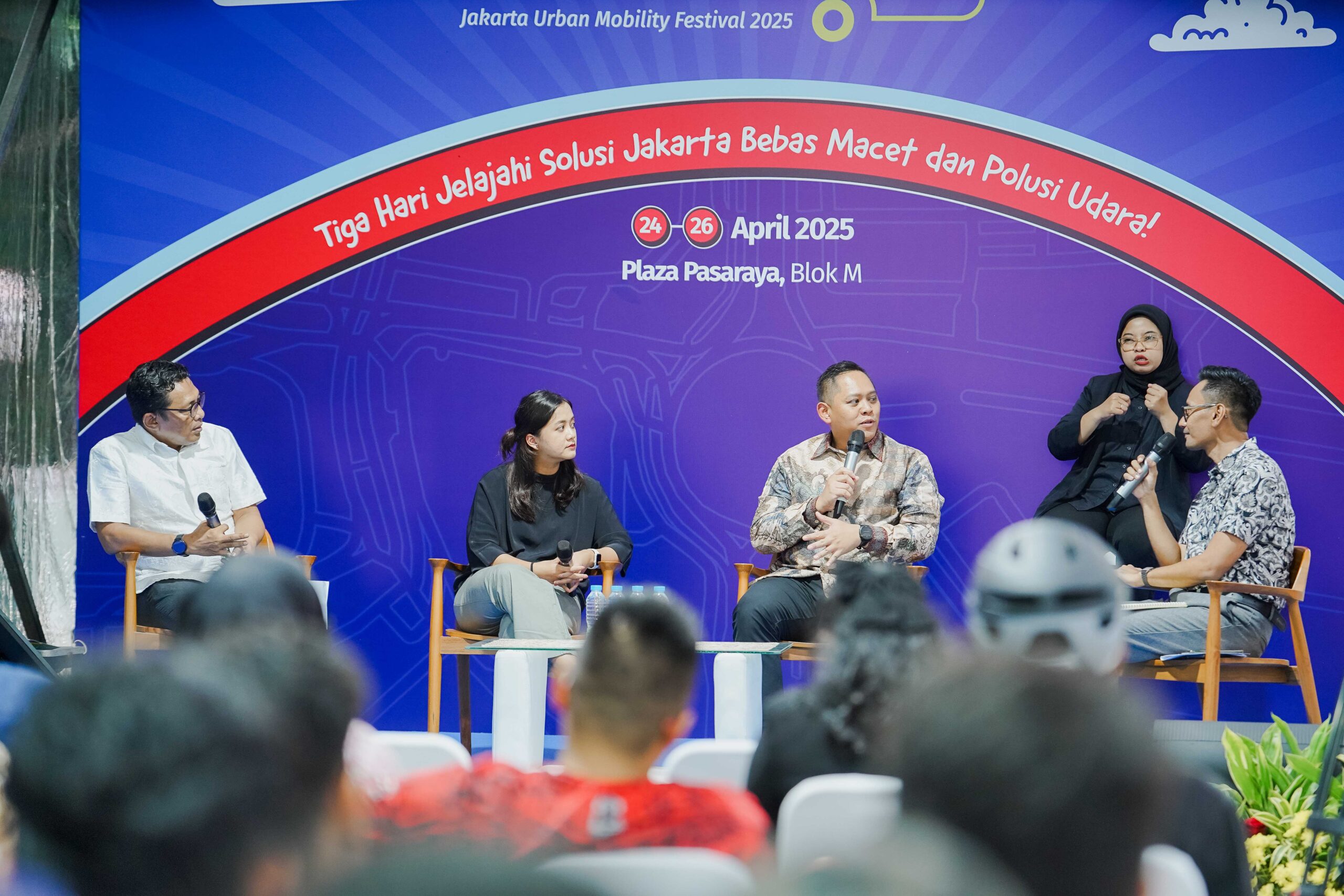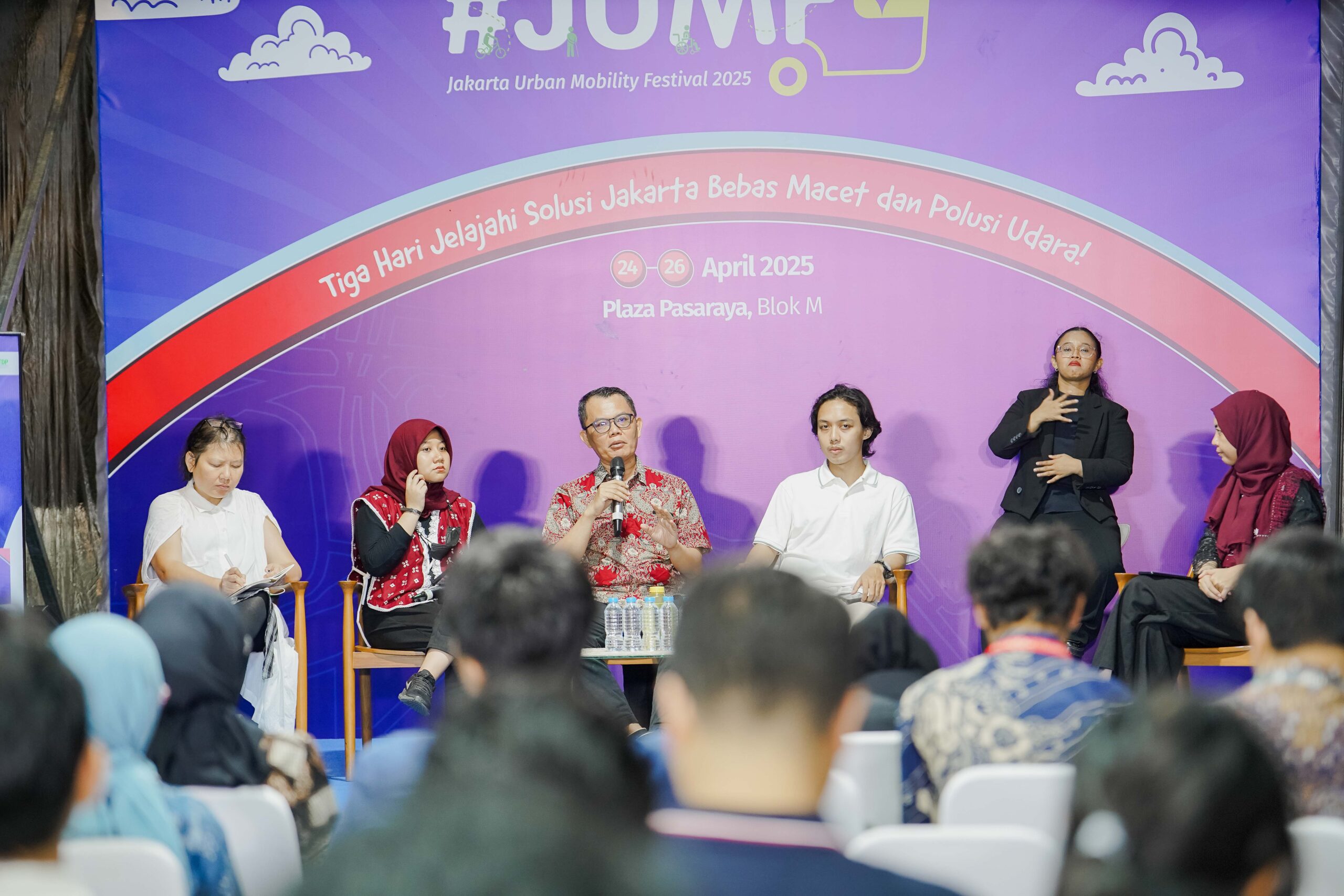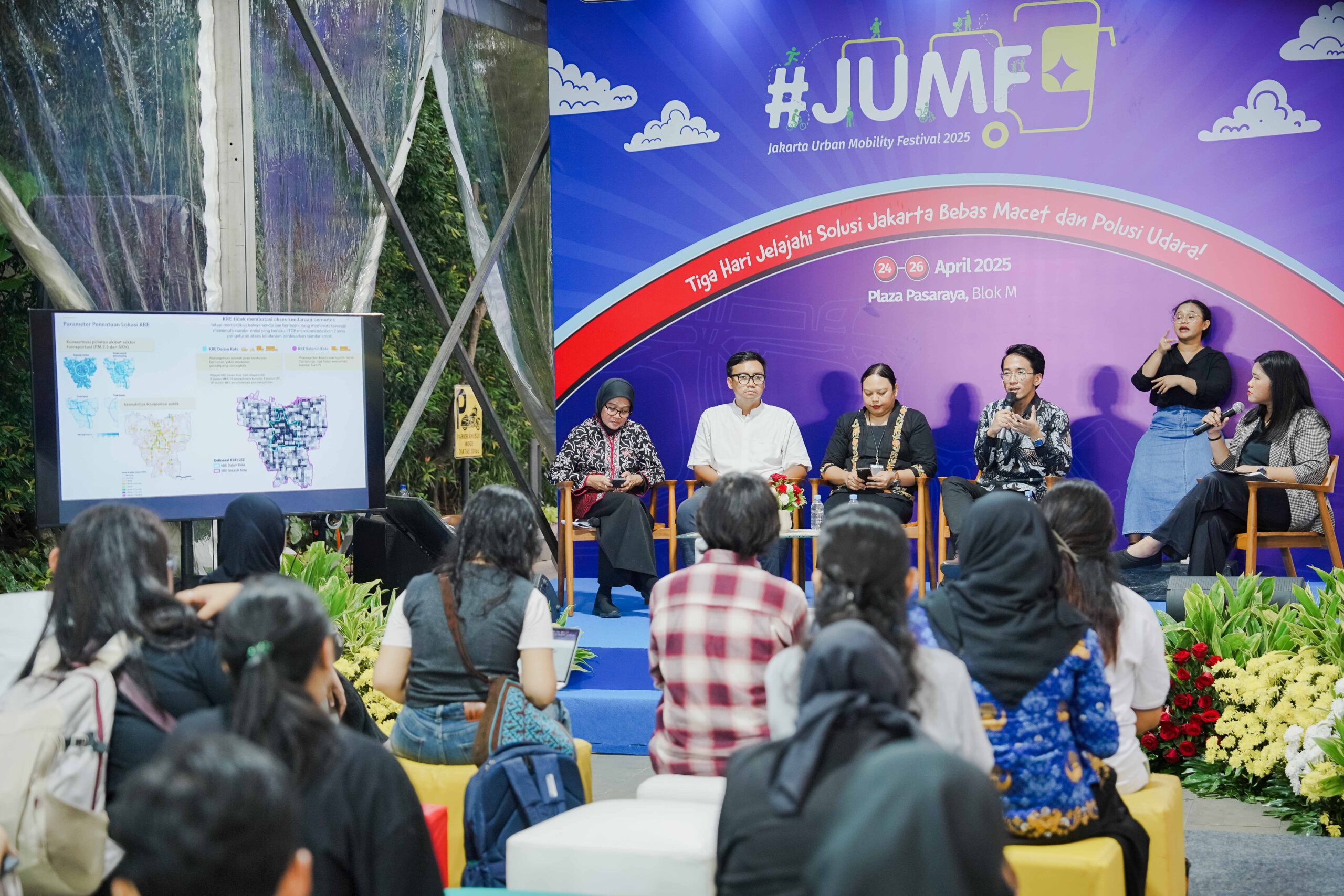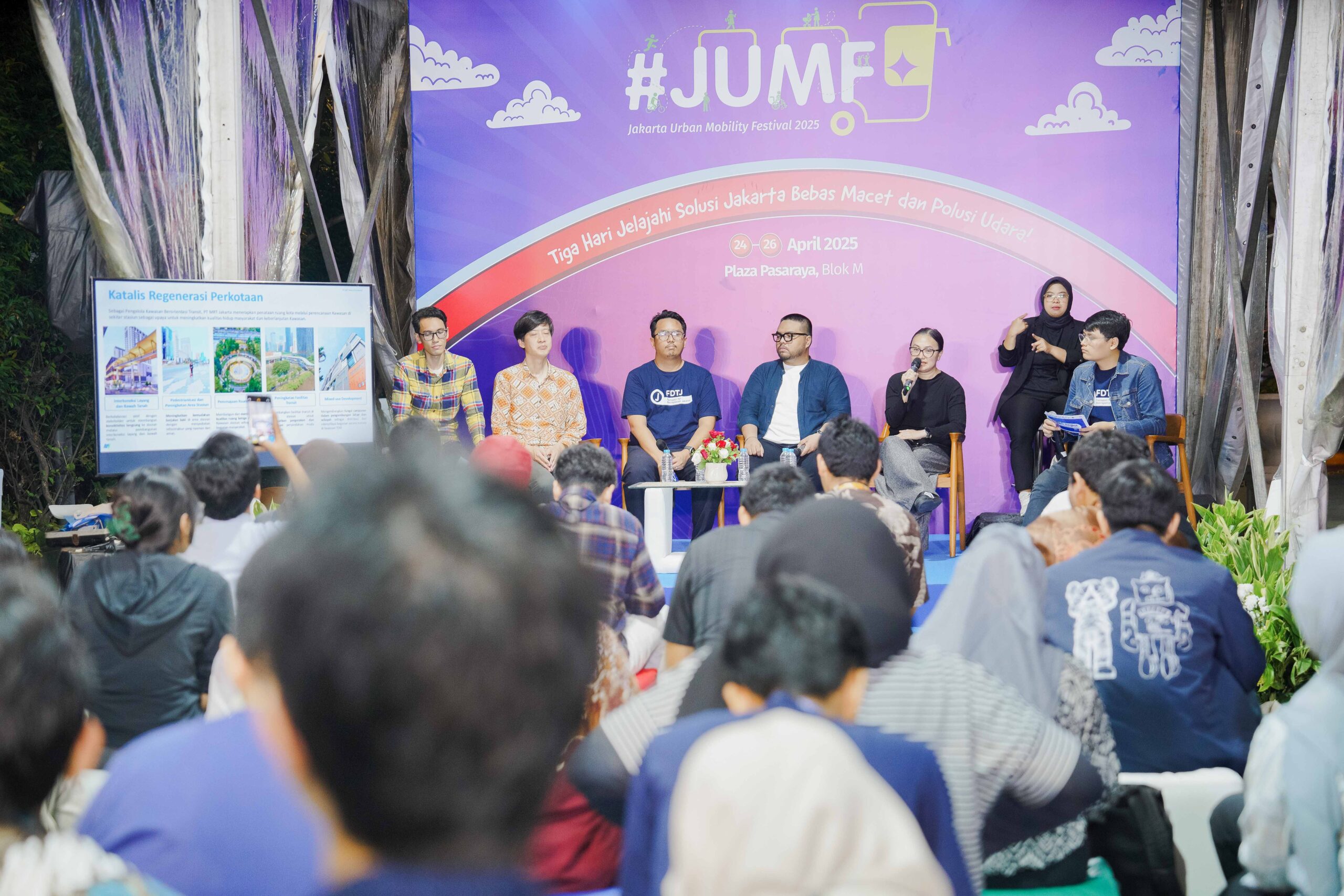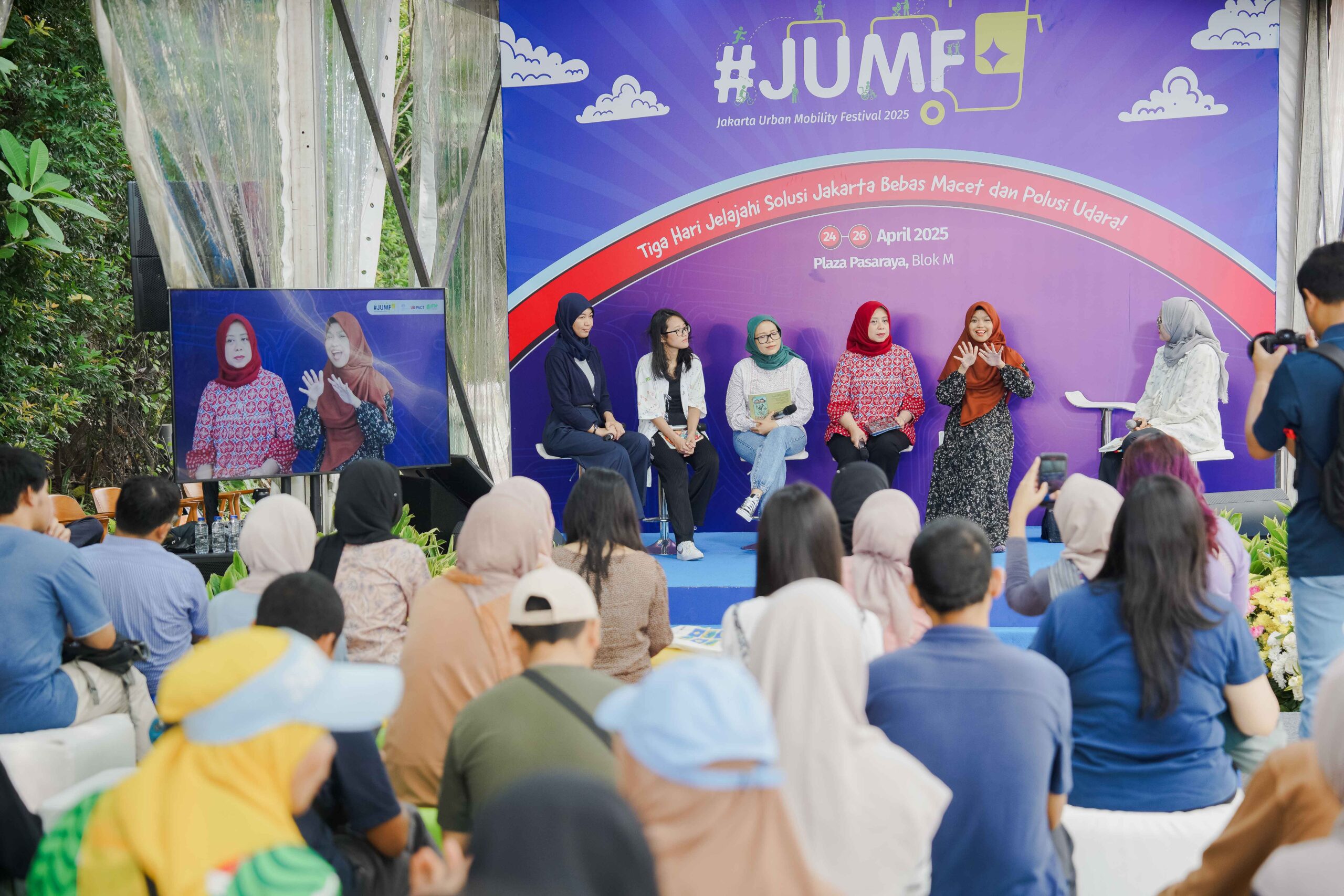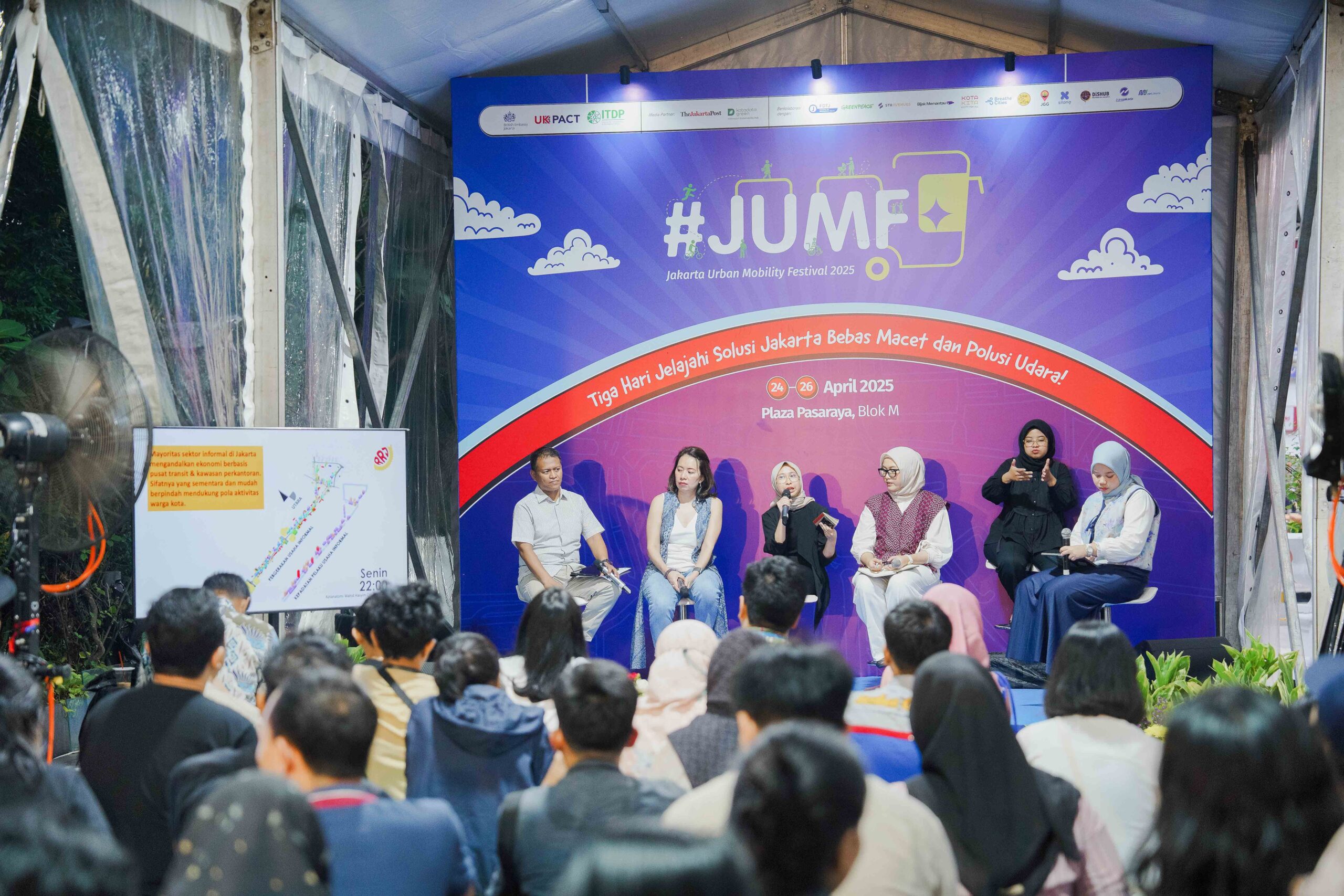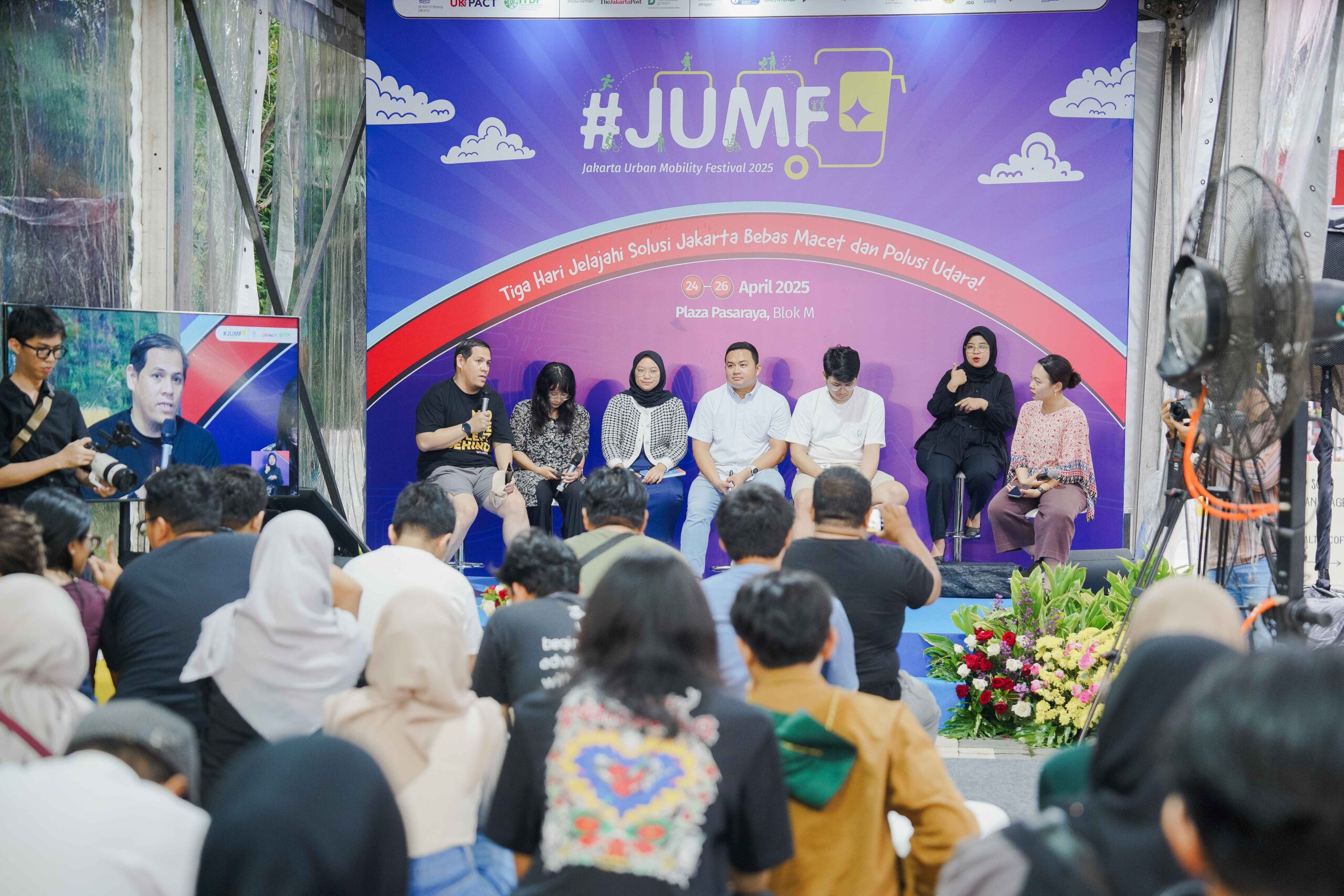May 07, 2025
Jakarta Urban Mobility Festival #JUMF 2025: Three Days Exploring Solutions for a Traffic- and Pollution-Free Jakarta
ITDP Indonesia, with support from the UK Government through the Future Cities UK PACT (UK Partnering for Accelerated Climate Transitions) program, held the Jakarta Urban Mobility Festival (JUMF) on April 24-26, 2025, at Plaza Pasaraya Blok M. The event was presented as a platform for socialization, advocacy, and collaboration in Traffic Demand Management, which encourages public understanding, awareness, and participation to create a more sustainable transportation system—reducing congestion, improving air quality, and supporting community welfare.
Jakarta Urban Mobility Festival collaborated with organization or institutions from various sectors, such as Bike to Work (B2W) Indonesia, Breathe Jakarta, Dinas Perhubungan DKI Jakarta, Forum Diskusi Transportasi Jakarta (FDTJ), Greenpeace, Jakarta Good Guide, Katadata Green, MRT Jakarta, Silang.id, Stravenues, The Jakarta Post, and Transjakarta. The event was also filled with thematic installations, interactive games, community booths, and panel discussions focused on inclusive mobility and urban design that supports pedestrians, cyclists, and public transport users.
Jakarta Urban Mobility Festival was officially opened on April 24, 2025, with welcoming remarks and a ceremonial “aspiration wall” signed by Southeast Asia Director of ITDP, Gonggomtua Sitanggang; British Ambassador to Indonesia, Dominic Jermey; and Governor of Jakarta, Pramono Anung.
In his speech, Southeast Asia Director of ITDP, Gonggomtua Sitanggang, explained that Traffic Demand Management is not just about limiting private vehicles, but also aims to create an ecosystem that encourages the shift to public transportation.
The Jakarta Governor, Pramono Anung, emphasized that solving Jakarta’s congestion and air pollution problems requires more than just infrastructure development. “Fundamental changes are needed to change the perspective, character, and habits of people who previously depended on private vehicles to switch to public transportation,” he said. He also explained the steps that have been taken, such as improving public transportation services, improving pedestrian facilities, and using ERP revenue to support transportation subsidies.
The British Ambassador to Indonesia, Dominic Jermey, highlighted the importance of an integrated strategy to reduce dependence on private vehicles and called for collective action to promote sustainable mobility that prioritizes people’s needs over vehicles.
Before delivering their speeches, the three of them visited the installations in the JUMF area that presented mobility challenges in cities, especially Jakarta, as well as ITDP’s recommendations to encourage more inclusive, equitable, and sustainable mobility.
One of the main discussions was a panel titled “Unraveling Jakarta’s Congestion and Air Pollution through Traffic Demand Management” moderated by Ivany Atina Arbi of The Jakarta Post. The panel featured Susilo Dewanto, Head of Data and Information, Jakarta Transportation Agency; Taufik Zoelkifli, Member of Jakarta’s Regional House of Representatives; Gonggomtua Sitanggang, Southeast Asia Director of ITDP; and Chintya Imelda Maidir. Indonesia Senior Country Coordinator, Vital Strategies. The panel addressed Jakarta’s heavy reliance on private vehicles—at 80% of urban mobility—and its consequences, including worsening congestion and lowering air quality.
In addition to the main panel, eight discussion sessions held during JUMF offered a variety of perspectives, covering topics such as the role of the middle class in urban change, community readiness for vehicle restriction regulations, as well as health issues and inclusive urban spaces.
The Jakarta Mobility Urban Festival 2025 is a collective step toward building a more livable city. Through an educational and participatory approach, JUMF invited all members of society to explore and engage in strategies that can create a cleaner, more comfortable, efficient, safe, and affordable urban transport system.

